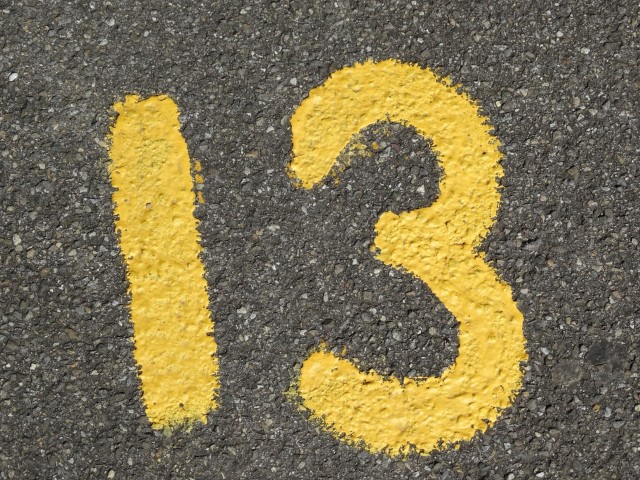
Today is Tuesday March 13th, 2012 and it is a common day to most English speakers. But if you live in a Spanish speaking country today is Martes 13, día de la mala suerte or the equivalent to Friday the 13th. It is curious that this “bad luck day” superstition changes depending on the country. For Latin America, Spain and Greece it’s on a Tuesday the 13th and in the United States and England it’s on Friday the 13th.
The Number 13
The phobia to the number 13 is called Triskaidekaphobia (or in Spanish Triscaidecafobia). Here are some of the legends that have contributed to the myth of the unlucky number 13:
1. 13 people were present in the Last Supper that resulted in the crucifixion and death of Jesus.
2. In the Kabbalah, 13 evil spirits are mentioned.
3. The Antichrist is mention in Chapter 13 of the Apocalypse.
4. In the Tarot, the number 13 means death.
5. In Norse mythology, Loki or Loptr was believed to have engineered the murder of Balder, and was the 13th guest to arrive at the funeral. Loki was “Christianized” as Satan.
The result of this phobia is that buildings skip having a 13th floor, some airplanes do not have a row 13 and artists like the Uruguayan band No te va a gustar that leaves the 13 track blank.
Friday
Paraskevidekatriaphobia is the fear of Friday the 13th. Supposedly bad luck is attributed to this day because the Knights Templars were arrested on a Friday the 13th in the year 1307. This story was recently dusted off and revived in 2003 by Dan Brown in his novel The Da Vinci Code.
Tuesday or Martes
 Here are some of facts that placed the Tuesday as an unlucky day:
Here are some of facts that placed the Tuesday as an unlucky day:
1. The Fall of Constantinople was Tuesday, 29 May 1453 (according to the Julian Calendar).
2. The word Tuesday in Spanish is Martes and comes from the planet Mars after the Greek god of the same name that represents war (destruction, blood and violence).
Martes, ni te cases, ni te embarques
There is a popular saying in Spanish well-known in Latin America inspired by this superstition that goes Martes, ni te cases, ni te embarques (Tuesday, nor get married, nor embark) that means to stay at home, don’t travel and even don’t get married on this day because it is bad luck. There are other variations of this same one:
1. En 13 y martes, ni te cases ni te embarques – On the 13th and Tuesday, nor get married, nor embark.
2. Martes, ni te cases, ni te embarques, ni de tu familia te apartes – Tuesday, nor get married, nor embark, nor from your family separate.
3. A funny one from Chile: Martes, ni te cases, ni te embarques, ni tu puerco mates – Tuesday, nor get married, nor embark, nor kill your pig.
Bad Luck in Other Countries
In Italy the equivalent of Friday the 13th or Martes 13 is Friday the 17th. When 17 is viewed as the Roman numeral, XVII, an anagram or letter rearrangement spells out VIXI, which in Latin means I have lived in other words, My life is over or I’m dead. In China, Japan, Korea the number 4 is associated with death.
Check out these infographics about Martes 13
The importance of martes 13 in prehispanic cultures:
Martes 13 mysteries:
Do you believe in this superstition?
Check out these other English Spanish articles.